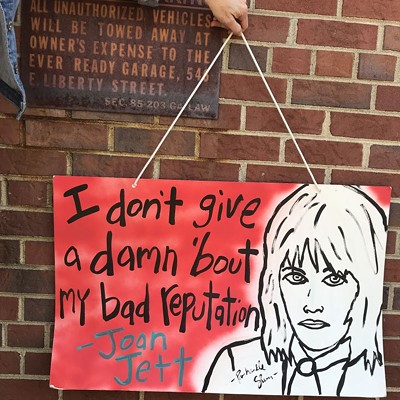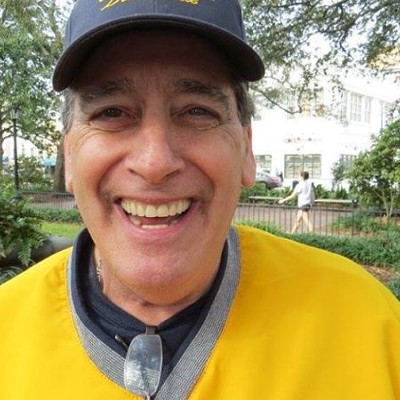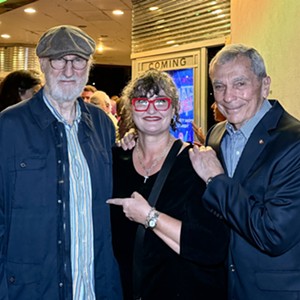My father–in–law called me up last week in the middle of the day, which was odd.
First of all, he usually avoids me during work hours lest I chase him down with a request to carpool a gaggle of yammering Girl Scouts. Second, ever since he bought a Droid he has become an obsessive texter.
But even weirder than hearing his voice on the line was his request:
“I want to take you to lunch at the Savannah Golf Club with the other Romeos.”
Mystifying. Even more than a jabble of Corps of Engineers water data from the last 60 years, which is what I was looking at when he called. As far as I know, this recently retired oncologist has never played golf in his life.
And though he is a very nice–looking man, I think the nurses who worked with him through 40 years in practice would agree that no one but my mother–in–law would classify him as a “Romeo.”
After I asked him if he was planning to pawn me off so he could make way for a newer model of daughter–in–law, maybe one that didn’t crab at him to quit texting at the dinner table, he explained that “ROMEO” is an acronym for Retired Old Men Eating Out.
This still sounded slightly dangerous, but I’m never one to turn down a free lunch.
Turns out this is no ordinary group of guys eating chicken fingers and complaining about prostates. While some ROMEO clubs veto women, these Savannah Romeos allow female guests to join them to eat and listen to a program of local interest, anything from science to history to poetry and everything in between—a marine scientist is coming next month, and jazzman Ben Tucker is slated to talk about his experience in the Civil Rights movement soon after.
On the bill for this day was bestselling author Jonathan Rabb, with four historical novels to his credit and another in the works. A former political theory professor at Columbia, he’s now on the writing faculty at SCAD.
I suspected my father–in–law invited me along because he was hoping that Rabb’s literary proficiencies would inspire me to push out a book of my own. Regrettably, bestselling fiction writing isn’t contagious. But it’s always a delight to hear the witty and self–deprecating Rabb speak on any topic.
As we lunched on asparagus, rice, rolls and salmon accompanied by pitchers of sweet tea, my father–in–law whispered the names of the gentlemen and few ladies in the room. Most were dressed elegantly in smart ties and crisp suits, the attire of an era when eating out meant always wearing one’s best.
Though hearing aids and canes were popular accessories, an air of alacrity permeated the murmurs of conversation.
Who knew so many old folks were fond of texting at the table?
I already knew a few of these famous Savannah faces from their many accomplishments: Philanthropists and art collectors Don and Kay Kole. Real estate developer and Leadership Savannah founder Ed Feiler. Shoe manufacturer and mystery novelist Larry Wagger, who released his first book last year at the age of 93.
At the next table sat Dr. Harold Black, still practicing dentistry after 50 years and a pioneer in treating sleep apnea. Across the room was Dr. Murray Arkin, former chief of staff at Memorial Hospital, who treated thousands of Savannahians from 1958 to 2005.
I passed the salad dressing to legendary architect Eric Meyerhoff, whose firm penned the plans for dozens of civic projects, including Rousakis Plaza and City Market, and who personally designed the stunning bronze WWII monument on River Street unveiled in 2010.
Even a greenhorn like myself could tell that this was no ordinary gathering of retirees. These were Savannah’s greatest generation, people who spent the prime of their lives in service to their community and haven’t let small details like being hard of hearing or aching joints stop them from engaging. They’re what my people call real machers—big shots with indefatigable reserves of leadership and integrity, the kind of people who get stuff done.
Rabb obviously understood the sum of significance in the room because he offered the highest tribute imaginable from a writer: A reading from his work–in–progress, “Untitled Savannah Project,” heretofore not heard by anyone but his agent and his lovely wife, Andra Reeve–Rabb.
If you’re familiar with Second Son or any of Rabb’s other novels, you know that place plays as prominent a role as his characters. Set in 1947, the first chapter of his new book describes a Savannah few remember, down bustling West Broad Street (now MLK Boulevard) and onto Broughton, where every storefront was a family–owned business.
It was a time when many of the folks in the room were in their teens and early 20s, just beginning to make their way in the post–War world. (In fact, Rabb interviewed many of them to get the historical details just right.)
These Savannahians, and many more their age, spent the next six decades having tremendous impact on their city. They are the people behind the hospitals and museums and foundations, the mid–century development and historic preservation, still possessing the same grace that impels a person to put on a tie or the good gold earrings for lunch on a Wednesday.
Maybe my father–in–law just wanted to spend some quality time together, but he and his friends provided a humbling lesson on just how much a person can do with one life.
When the Savannah we know now has progressed into its inevitable future, may all of us have given a tenth as much when it’s our turn to be ROMEOS (or as I personally aspire to become, a WOLFDOG. That’d be Weird Old Ladies Fabulously Dining Out Gratis. Yes, I made it up. Not as catchy, but I hope to make this free lunch thing a habit.)
And may we all still have the wherewithal to text the grandkids from the table.

























